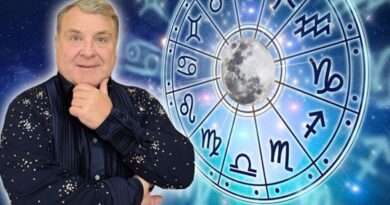Expert warns that struggling to get enough sleep could increase your dementia risk
A leading neurologist has confirmed that a lack of sleep could be linked to “cognitive decline” and “conditions like dementia”.
Professor Guy Leschinzer, a renowned expert in neurology and sleep medicine at Guy’s Hospital London, discussed the link with Steven Barlett on an episode of the Diary of a CEO podcast this week.
Steven asked if there was a link between sleep deprivation and Alzheimer’s, with the professor confirming that both chronic sleep deprivation and insomnia are “associated” with the condition.
Professor Leschinzer said: “So, there is some evidence to suggest that both chronic sleep deprivation and insomnia are associated with cognitive decline and conditions like dementia.
“It goes back to what I was saying earlier, which is, but… by the way, there’s also some studies that have suggested links between sleeping tablets and conditions like Alzheimer’s.”
He continued:”So, it goes back to this issue of whether or not it’s the insomnia or the sleep deprivation that causes Alzheimer’s. Is it sleeping tablets that causes Alzheimer’s or is it the fact that Alzheimer’s many, many years before causes changes to our sleep?
“And so I think that that story has not yet been umm… has not yet come to fruition in terms of our fundamental understanding of the links between sleep and Alzheimer’s disease and whether or not it’s directly causative.”
Steven then asked if he would recommend sleeping tablets, to which the professor replied that as a “general rule, no”, as there are “good” non-drug based techniques that can improve sleep.
He said these methods can help the “majority” of people suffering from insomnia, but there is “some evidence” that the prescribing of sleeping tablets alongside non-drug techniques can be beneficial in some cases.
Professor Leschinzer said: “Unfortunately, as part of my clinical practice, I see lots of people who’ve been struggling with their sleep for many many years.”
He said they may have tried all non-drug based treatment, so they have to then consider the impact of sleep deprivation on their mood, anxiety and ability to function and “make a judgement call”.
Insomnia is when an individual has regular issues with their sleep, including finding it hard to sleep, waking up several times in the night, lying awake at night, or waking up early and being unable to go back to sleep, according to the NHS.
Other symptoms include feeling tired after waking up, struggling to nap in the day, feeling tired and irritable and finding it difficult to concentrate.
Dementia is a syndrome (a group of symptoms) associated with a decline in brain function and often presents as an individual becoming increasingly forgetful, particularly when they’re over 65.
However, dementia also includes changes in how a person speaks, thinks, feels and behaves. Alzheimer’s is a type of dementia and, along with vascular dementia, comprises most cases.





